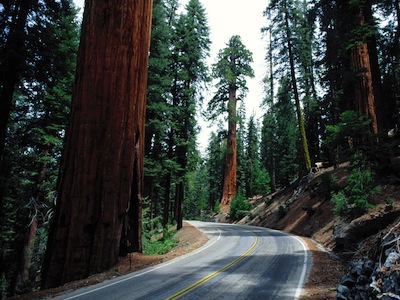1-800-865-9137
This Earth Day, Group Works to Restore Ancient Forests

Archangel Ancient Tree Archive, a nonprofit group from Michigan, is leading a new effort to reforest the planet using clones of some of the world's largest, most durable trees. David Milarch and his sons Jared and Jake, who have a family-owned nursery in the village of Copemish, Mich., became concerned about the world's forests in the 1990s. They began crisscrossing the U.S. in search of "champion" trees that have lived hundreds or even thousands of years, convinced that superior genes enabled them to outlast others of their species.
In recent years the Archangel team has focused on sequoias and redwoods, who they consider best suited to absorb massive volumes of carbon dioxide. As part of the project, they've come up with a number of methods of producing genetic copies from cuttings, such as placing inch-long branch tips in baby food jars containing nutrients and hormones. The specimens are then cultivated in labs until they've grown large enough to be potted.
Now, the team is taking the next step in the process: planting the new trees in the ground. In honor of Earth Day, ceremonial plantings of two dozen clones from California's mighty coastal redwoods are taking place today in seven nations: Australia, New Zealand, Great Britain, Ireland, Canada, Germany and the U.S.
Though the current plantings measure just 18-inches tall, the laboratory-produced trees are genetic duplicates of three giants that were cut down in northern California more than a century ago. This doesn't mean, however, that the trees are dead. Shoots still emerge from the stumps, including one believed to be about 4,000 years old.
"This is a first step toward mass production," said David Milarch, co-founder of Archangel Ancient Tree Archive. "We need to reforest the planet; it's imperative."
Archangel has an inventory of several thousand clones in various stages of growth that were taken from more than 70 redwoods and giant sequoias-- and according NASA engineer Steve Craft, research shows that those species hold much more carbon than other varieties.
The biggest challenge facing Archangel now is to find places to put the trees, people to nurture them and money to continue the project. The group is funded entirely through donations and doesn't charge for its clones.
Call us today! 1-800-865-9137



